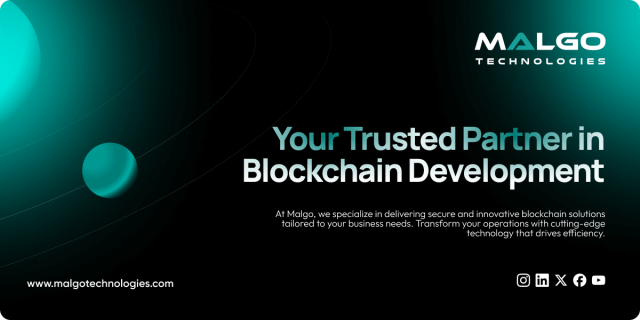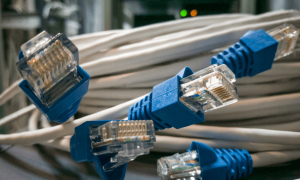Blockchain technology is a secure, decentralized way to record information across many computers. For a business to use this technology, it needs specialized help. The services a good blockchain development company offers are not just coding; they cover the entire process, from figuring out the best use case to maintaining the final product. A complete service offering gives businesses the tools they need to correctly use a distributed ledger system to improve how they operate. These core services ensure that a company's unique problems are solved with a proper, effective digital solution. Getting these services right is critical for anyone looking to build a secure and verifiable digital system.
Build Secure, Smart, and Scalable Blockchain Systems – Start Today!
Getting Expert Advice for Blockchain Implementation: Blockchain Consulting Services
The first and most important service any reliable blockchain development partner should provide is expert consultation. Before writing a single line of code, a business needs to know if blockchain is even the right fit for their problem. Expert advisors study a company's existing systems, goals, and challenges. They help select the correct type of blockchain—public, private, or consortium—that will meet the business's specific needs for speed, privacy, and control. This advisory stage is where the whole project gets its direction.
The consulting service goes deeper than just picking a type of ledger. It also involves creating a detailed plan, known as a product roadmap. This plan outlines every stage of development, expected milestones, and the specific features to be built. This prevents wasting time and money on features that do not support the main business goal. Consultants also help identify the most effective blockchain use case for a business, whether it's for supply chain tracking, financial services, or identity management. By getting this foundational advice, a business saves resources and starts with a clear, realistic idea of what is possible and how to get there. It is the initial step that determines the eventual success of the whole system.
Developing Self-Executing Contracts on a Blockchain: Smart Contract Development
A smart contract is a piece of code that lives on the blockchain and automatically executes an agreement when certain, pre-set conditions are met. This self-executing nature is what removes the need for an intermediary, adding trust and speed to business agreements. Every service provider must be highly skilled in developing smart contracts on a blockchain because these contracts control valuable assets and operations.
The process for Smart Contract Development involves several key stages. First is the design, where the team maps out the contract's logic, defining the rules and conditions. Next, the code is written using programming languages like Solidity, often on platforms like Ethereum or Binance Smart Chain. Critically, these contracts must be written with exceptional care because, once deployed, they cannot easily be changed. A tiny error can lead to a major security flaw or loss of funds.
Because of this risk, companies offer specialized smart contract testing and auditing. Before the contract is launched, security experts check the code for vulnerabilities, bugs, and logical errors. This is a non-negotiable step that gives assurance about the contract's reliability and security. A company that skips this vital audit is not providing a complete service. Effective development of these contracts is essential for automating secure, verifiable transactions and agreements between different parties.
Creating DApps for Business Solutions: Decentralized Application Development (DApps)
A Decentralized Application (DApp) is an application that runs on a decentralized network, usually a blockchain, rather than on a single computer or server owned by one party. The key difference is that the rules and data are not controlled by a central authority. The service of DApp development is about creating these user-facing applications that utilize the distributed ledger to perform various functions.
Creating DApps for business solutions requires a wide set of skills, covering both the blockchain (back-end) and the user interface (front-end). The back-end relies on the smart contracts and the network's consensus mechanism. The front-end must be just as user-friendly as any traditional application, ensuring people can easily interact with the complex technology underneath. Examples of DApps include decentralized finance (DeFi) platforms, voting systems, and complex asset tracking tools.
A good provider will focus on DApp usability and performance. A decentralized system can sometimes be slower or cost more to use than a traditional one. The development team must know how to build the application so it is fast, cheap to use (low gas fees), and scalable, meaning it can handle many users without slowing down. Whether building a DApp for supply chain transparency or a DApp for managing digital collectibles, the service must deliver a complete, seamless experience for the end-user while retaining the security and transparency benefits of the blockchain.
Building Secure Digital Asset Wallets: Crypto Wallet and Exchange Development
As soon as a business or user interacts with a blockchain, they need a way to store and manage their digital assets, like cryptocurrencies or tokens. This is where the service of crypto wallet and exchange development comes in. A digital asset wallet is not where the currency is stored; rather, it holds the private keys that prove ownership of the assets on the blockchain.
The service for building secure digital asset wallets must prioritize security above all else. This includes using strong encryption, multi-factor authentication, and methods for secure key storage. Wallets can be for mobile devices, desktop applications, or even hardware, and the development team needs to be able to create all types depending on the client's need for security and access. A secure multi-sig wallet solution (requiring multiple approvals for a transaction) is a good example of a high-security feature offered by experienced teams.
For companies looking to allow users to trade digital assets, crypto exchange development is the service they need. This involves building a massive, secure platform that handles large volumes of transactions. Key components include a high-speed matching engine (to pair buyers and sellers), a secure user management system, and connections to external banks or payment gateways. An experienced firm will know how to create both centralized and decentralized exchange (DEX) platforms, providing a complete set of solutions for managing and trading digital value.
Implementing Private Blockchain for Enterprises: Private and Consortium Blockchain Solutions
Many large companies need the security and verification of a blockchain but cannot use a public network like Ethereum because they need control over who can participate and see the data. This is why a key service is Private and Consortium Blockchain Solutions.
A private blockchain is a type of distributed ledger controlled by a single organization. It is permissioned, meaning only authorized participants can join and read or write data. The service for implementing private blockchain for enterprises involves setting up the network, choosing the right framework (like Hyperledger Fabric), and customizing the access rules. This gives the company the benefits of data integrity and automation without sacrificing privacy or performance. This is often used for internal supply chains or private data sharing between departments.
A consortium blockchain is similar, but it is controlled by a group of multiple organizations. This is useful for industries like banking or shipping, where several companies need to share information in a trusted, common system. The development service here requires a strong focus on governance and consensus mechanism design. The team helps the consortium agree on how decisions will be made and how transactions will be approved. The ability to correctly set up these controlled environments is a sign of a high-level service provider, as it requires deep knowledge of both technology and business operations.
Checking Smart Contract Code for Bugs: Security and Audit Services for Blockchain
The secure, reliable running of a blockchain system depends entirely on the code. Since a flaw in a smart contract can lead to the permanent loss of assets or a system crash, Security and Audit Services for Blockchain are not optional; they are a necessary part of the development lifecycle.
The primary goal of this service is checking smart contract code for bugs before it is launched. This involves a thorough, line-by-line review of the contract code by experienced security auditors. They search for common and complex vulnerabilities, such as re-entrancy attacks, integer overflow issues, and logical flaws that could be exploited by hackers. The audit team uses both manual review and automated tools to provide the highest level of scrutiny. A report detailing all findings and recommended fixes is provided to the development team.
Beyond just pre-launch audits, good firms offer continuous blockchain network security monitoring. This means watching the live system for suspicious activity and helping the client quickly respond to any potential threats. They also offer services for post-deployment smart contract upgrades or changes to correct issues found after the system is live. A full-service provider understands that security is an ongoing process, not a one-time check. This focus on verifiable security is directly related to the trustworthiness aspect of a service provider, giving clients confidence that their digital assets and operations are protected against external threats. These services maintain the integrity of the whole digital system over its entire lifespan.
Ongoing Support for Blockchain Systems: Maintenance and Upgrades
A finished blockchain application is not the end of the service. Like any software, it needs continuous care. A key service that every company should offer is ongoing support for blockchain systems, including maintenance and upgrades. This service makes sure the system stays functional, secure, and current with changing technology.
Blockchain maintenance services cover several areas. The team resolves any bugs or issues that appear after the system is launched. They monitor the network's performance, making sure transaction speed stays high and costs remain low. This often involves continuous work on the underlying infrastructure to keep everything running smoothly.
Technology changes fast, and new protocols or network updates come out regularly. The support service also includes planning and executing system upgrades. This might mean updating smart contracts to add new features, moving to a faster version of the core blockchain platform, or adjusting the security protocols to meet new industry standards. Without this continuous service, any blockchain solution will quickly become outdated and vulnerable. A reliable provider acts as a long-term technical support partner for decentralized platforms, ensuring the client's investment continues to operate reliably and keeps pace with the latest technological improvements. This commitment to long-term health is a sign of true expertise and a focus on client success.
Conclusion: A Full Spectrum of Digital Ledger Solutions
To succeed in building a safe and working distributed ledger system, a business needs a blockchain development company that offers a complete set of services. These services extend from initial advice on getting expert advice for blockchain implementation to the creation of custom solutions like DApps and secure crypto wallets. Crucially, they must also provide security and audit services and long-term ongoing support for blockchain systems. By focusing on this full spectrum of offerings—consulting, contract writing, application building, and continuous security checks—a service provider demonstrates the deep knowledge and technical ability required to deliver true digital value. This holistic approach is what separates a basic coding service from a dedicated digital system partner.






